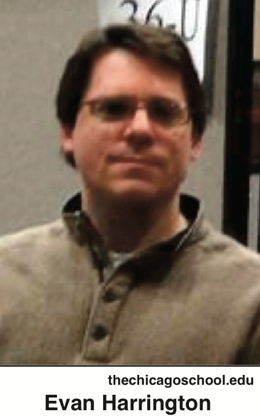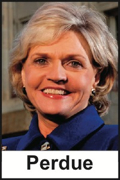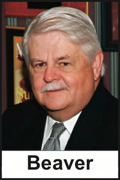Rascals case in brief
In the beginning, in 1989, more than 90 children at the Little Rascals Day Care Center in Edenton, North Carolina, accused a total of 20 adults with 429 instances of sexual abuse over a three-year period. It may have all begun with one parent’s complaint about punishment given her child.
Among the alleged perpetrators: the sheriff and mayor. But prosecutors would charge only Robin Byrum, Darlene Harris, Elizabeth “Betsy” Kelly, Robert “Bob” Kelly, Willard Scott Privott, Shelley Stone and Dawn Wilson – the Edenton 7.
Along with sodomy and beatings, allegations included a baby killed with a handgun, a child being hung upside down from a tree and being set on fire and countless other fantastic incidents involving spaceships, hot air balloons, pirate ships and trained sharks.
By the time prosecutors dropped the last charges in 1997, Little Rascals had become North Carolina’s longest and most costly criminal trial. Prosecutors kept defendants jailed in hopes at least one would turn against their supposed co-conspirators. Remarkably, none did. Another shameful record: Five defendants had to wait longer to face their accusers in court than anyone else in North Carolina history.
Between 1991 and 1997, Ofra Bikel produced three extraordinary episodes on the Little Rascals case for the PBS series “Frontline.” Although “Innocence Lost” did not deter prosecutors, it exposed their tactics and fostered nationwide skepticism and dismay.
With each passing year, the absurdity of the Little Rascals charges has become more obvious. But no admission of error has ever come from prosecutors, police, interviewers or parents. This site is devoted to the issues raised by this case.
On Facebook
Click for earlier Facebook posts archived on this site
Click to go to
Today’s random selection from the Little Rascals Day Care archives….
Click for earlier Facebook posts archived on this site
Click to go to
Today’s random selection from the Little Rascals Day Care archives….
Where ‘thousands of cult abusers infiltrated respectable society’?
 March 30, 2014
March 30, 2014
A welcome contribution to the unraveling of the “satanic ritual abuse” case against Fran and Danny Keller was this letter from Chicago psychology professor Evan Harrington dismantling the testimony of prosecution witness Randy Noblitt, a psychologist and self-described expert in ritual abuse.
Here’s how the Austin Chronicle summarized it:
“The letter, signed by 39 leading experts from across the country and around the world, presents the court with evidence not only that Noblitt was, and is, unqualified to serve as an expert at all, but also that ‘ritual abuse’ is a topic unsupported by any empirical research. Indeed, at trial the state called Noblitt to describe how the children’s allegations against the Kellers were believable and to avow that the allegations comported with ‘behaviors associated with so-called ritual abuse,’ reads the letter.
“ ‘In summary, the world portrayed by Dr. Noblitt is one in which thousands of cult abusers have infiltrated respectable society, and specifically daycare centers, in order to operate a clandestine subculture engaged in massive levels of felonious criminality,’ reads the letter. To the contrary, Harrington writes, there is not now, nor was there in the early ’90s, any mainstream support for, or scientific evidence to demonstrate, that ritual abuse is a real phenomenon. ‘In conclusion, Dr. Noblitt stated in testimony at trial that there is little controversy about his descriptions of ritual abuse,’ reads the letter. ‘This statement was not factually true in 1992, and is less true today.’ ”
I have long wondered: Why do the Ann Wolbert Burgesses, the Susan J. Kelleys, the Mark “Where there’s smoke…” Eversons and the Randy Noblitts continue onward in their careers while their victims get not even a ‘Gee, sorry, guess I was wrong’?
How do professionals, however dubiously credentialed, manage to keep their licenses and their jobs after testifying so confidently, so misleadingly and so destructively against defendants such as the Kellers and Bob Kelly? What can be done to hold them accountable?
Dr. Harrington, who teaches at the Chicago School of Professional Psychology, says this question sometimes comes up in his class on mental health law.
“The answer, for better or worse, is ‘nothing,’ “ he says. “When you look at an ‘expert’ like Dr. James Grigson in the case of Barefoot v. Estelle, it becomes very clear that there is no remedy for dealing with bad ‘experts.’
“The best one can hope for is that sufficient scientific evidence exists to prevent such a person from getting on the stand in the first place, or that the jurors are wise enough to discard the fallacious testimony. But there really is little that can be done after the fact, except to try to exonerate those who are factually innocent.”
Grigson was a Dallas psychiatrist notorious for persuading juries that defendants deserved capital punishment. “Dr. Death,” as he was known, was expelled from the American Psychiatric Association and the Texas Society of Psychiatric Physicians but kept his license and continued to practice.
Perdue removes one stain, leaves another
Jan. 2, 2013
What a bittersweet moment, reading Gov. Bev Perdue’s statement announcing her pardon of innocence for the Wilmington 10.
 Surely, for the six surviving defendants, the pardon represents far too little justice, far too long delayed. But so many of Perdue’s words apply poignantly to a more recent “dark chapter in North Carolina’s history” – the prosecution of the Edenton Seven:
Surely, for the six surviving defendants, the pardon represents far too little justice, far too long delayed. But so many of Perdue’s words apply poignantly to a more recent “dark chapter in North Carolina’s history” – the prosecution of the Edenton Seven:
“I have decided to grant these pardons because the more facts I have learned… the more appalled I have become about the manner in which their convictions were obtained….
“This conduct (of prosecutor Jay Stroud) is disgraceful. It is utterly incompatible with basic notions of fairness and with every ideal that North Carolina holds dear. The legitimacy of our criminal justice system hinges on it operating in a fair and equitable manner…. That did not happen here. Instead, these convictions… represent an ugly stain on North Carolina’s criminal justice system….
“Justice demands that this stain finally be removed. The process in which this case was tried was fundamentally flawed….”
As noted previously, state government has continued to withhold exoneration from the Little Rascals defendants. In addition to these reasons that the Edenton Seven haven’t matched the Wilmington 10 in capturing the public eye, there is this notable difference in the two cases:
No one involved in prosecuting the Wilmington 10 remains in office, and the current Pender County district attorney has accepted Perdue’s decision without complaint. But two decades after prosecuting the Edenton Seven, Bill Hart and Nancy Lamb remain on the job, no doubt ready to beat down any hint of exoneration.
Brent Adams & Associates, clean up your act
Oct. 31, 2011
“A highly publicized case occurred in coastal North Carolina almost 30 years ago. Making national headlines, the Little Rascals Day Care Center was run by a husband-and-wife team, Bob and Betsy Kelly…. The Little Rascals abuse case involved 90 children who all required extensive therapy sessions.”
Shouldn’t a prominent North Carolina firm of trial lawyers know better than to solicit clients with such a misleading characterization?
Do Brent Adams & Associates really believe all those children – or any of them – “required extensive therapy sessions”?
I have asked that this paragraph be removed from the firm’s website – no response yet.
‘Attached to their convictions’ – and then some
 Dec. 24, 2012
Dec. 24, 2012
“Why prosecutors sometimes fight post-conviction evidence so adamantly depends on each case. Some legitimately believe the new evidence is not exonerating.
“But legal scholars looking at the issue suggest that prosecutors’ concerns about their political future and a culture that values winning over justice also come into play. ‘They are attached to their convictions,’ (says Brandon Garrett, a law professor at the University of Virginia), ‘and they don’t want to see their work called into question.’ ”
– From “The Prosecution’s Case Against DNA” in the New York Times Sunday Magazine (Nov. 25, 2011)
“Attached to their convictions,” indeed. Nancy Lamb was so attached that in 1996, after Bob Kelly’s 99-count conviction was overturned, she rummaged around the office and turned up yet another molestation claim – this one from two years before the Little Rascals arrests.
Gerald Beaver, Kelly’s attorney, pointed out that the law requires any report of sexual abuse to be investigated immediately and called police investigator Brenda Toppin, who testified that she had told Lamb about the claim in 1992. Lamb denied any recollection of Toppin’s comment.
“All of this ‘We care about the children’ kind of went down the drain after the conviction,” Beaver said. “It was only when (Kelly) successfully appealed and was no longer pulling 12 consecutive life sentences that the state felt compelled to go out and find this witness.”
As usual, however, time proved no object for prosecutors dedicated to making life miserable for Little Rascals defendants. It would be 1999 before they dropped the final charge against Bob Kelly.











0 CommentsComment on Facebook